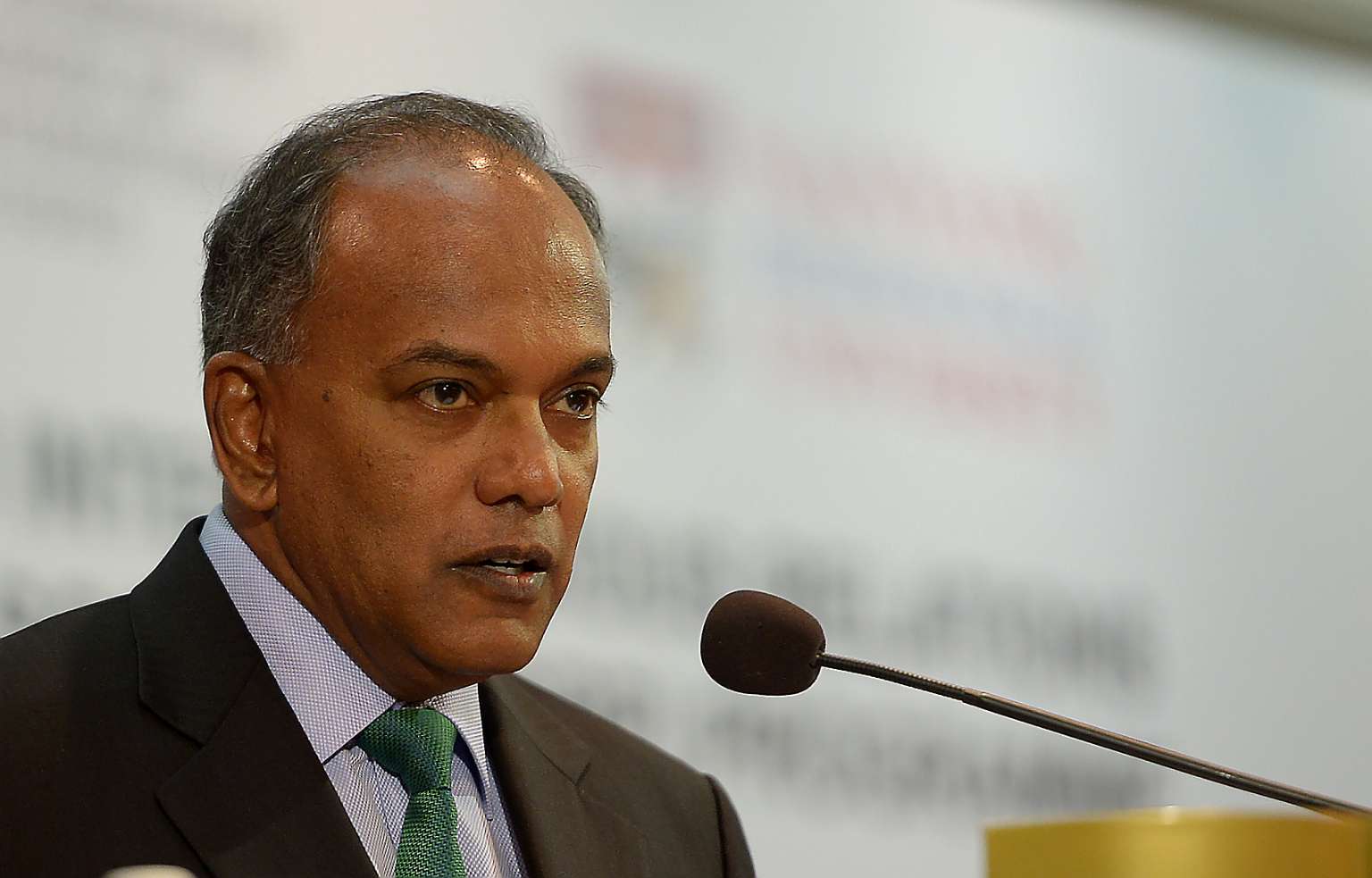S'pore stable because religions treated equally, says expert
Sign up now: Get ST's newsletters delivered to your inbox

Minister for Home Affairs & Law K Shanmugam at the Studies in Inter-Religious Relations in Plural Societies (SRP) Distinguished Lecture and Symposium, on Jan 19, 2016.
PHOTO: BERITA HARIAN
At a time of rising religiosity in the region, Singapore has to firmly protect its religious harmony, said an expert on inter-religious understanding yesterday.
Professor Julius Lipner told The Straits Times that various measures, such as barring foreign preachers who spread divisive messages from coming here and ensuring views on sensitive issues are aired responsibly, show the Government is very conscious of this fact.
Prof Lipner is a visiting fellow of the Studies in Inter-Religious Relations in Plural Societies Programme at the S. Rajaratnam School of International Studies.
The ban on divisive foreign preachers is a Singapore policy for which the Government makes no apologies, Home Affairs Minister K. Shanmugam had said the previous day.
Mr Shanmugam made the point when he opened a conference on expanding the common space among people of various faiths.
He had said that, while the Government will not interfere in doctrinal matters of each religion, it will not allow anyone to preach values contrary to Singapore's multicultural, multi-ethnic harmony.
"We will also look at what he preaches outside Singapore. As his teachings would be available online, it is wrong to allow him to build up a following in Singapore," the minister had said.
Yesterday, Prof Lipner said Mr Shanmugam's speech showed that maintaining religious harmony remains a government priority. It is also an acknowledgement of the sensitive geopolitical situation Singapore is in, he added.
Singapore, he said, has enjoyed peace and stability because all religions are treated equally under the law, a concept that, together with secularism, is enshrined in the Constitution.
"The moment we depart from these terms, we go on a very different trajectory, with a very different prospect for the future," said Prof Lipner, who is also emeritus professor of Hinduism and comparative religion at Cambridge University.
Singapore's firm stand on not allowing unfettered speech has been vindicated by the experience of countries such as Britain, he said, noting that his home country has had to deal with the consequences of not preventing hate speech.
"Great Britain made the mistake earlier on when they decided that anyone should be allowed to say anything in the name of free speech," he said.
This has given rise to controversial preachers such as Trevor Brooks, also known as Abu Izzadeen, who built up a following because he was able to deliver inflammatory speeches openly from a central London mosque.
"They finally realised that free speech has to be responsible speech, and there was not enough stress on the responsibility part, and are now doing what Singapore has been doing all this time."


